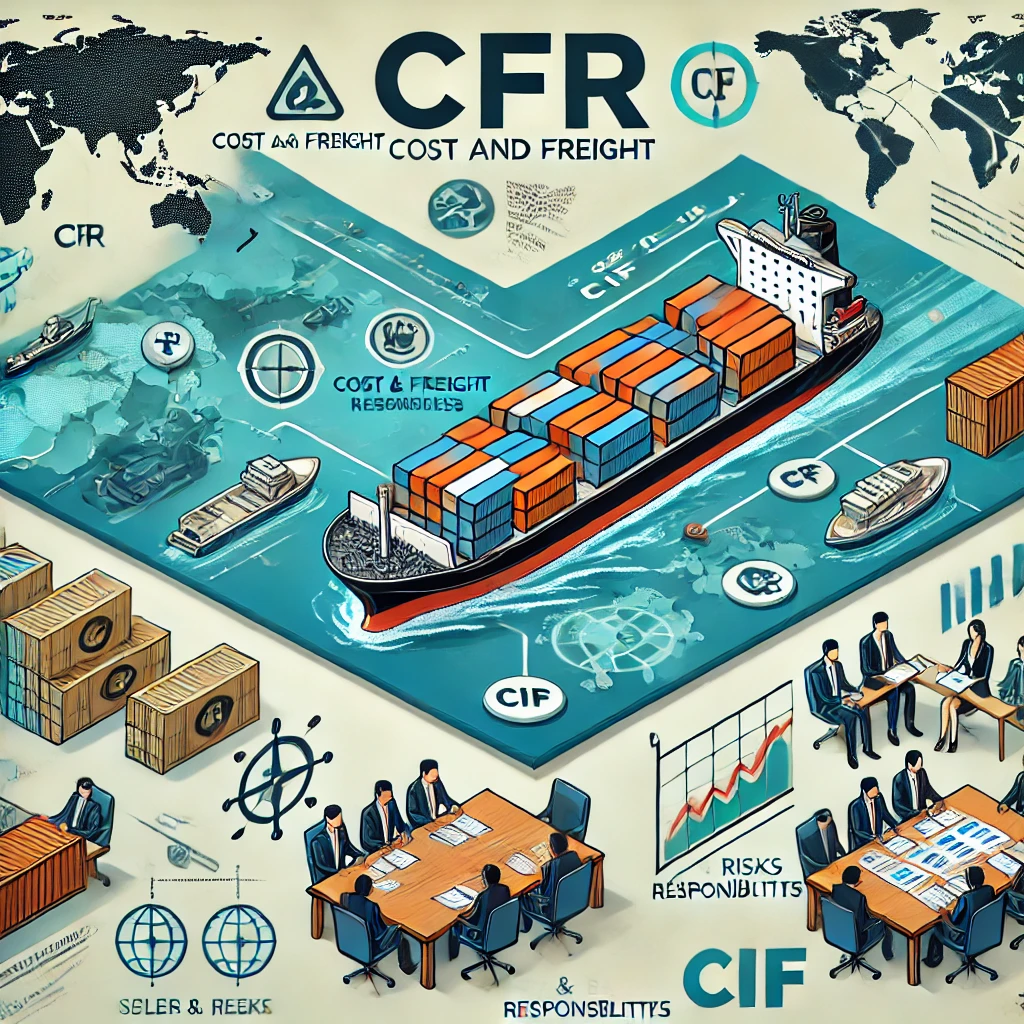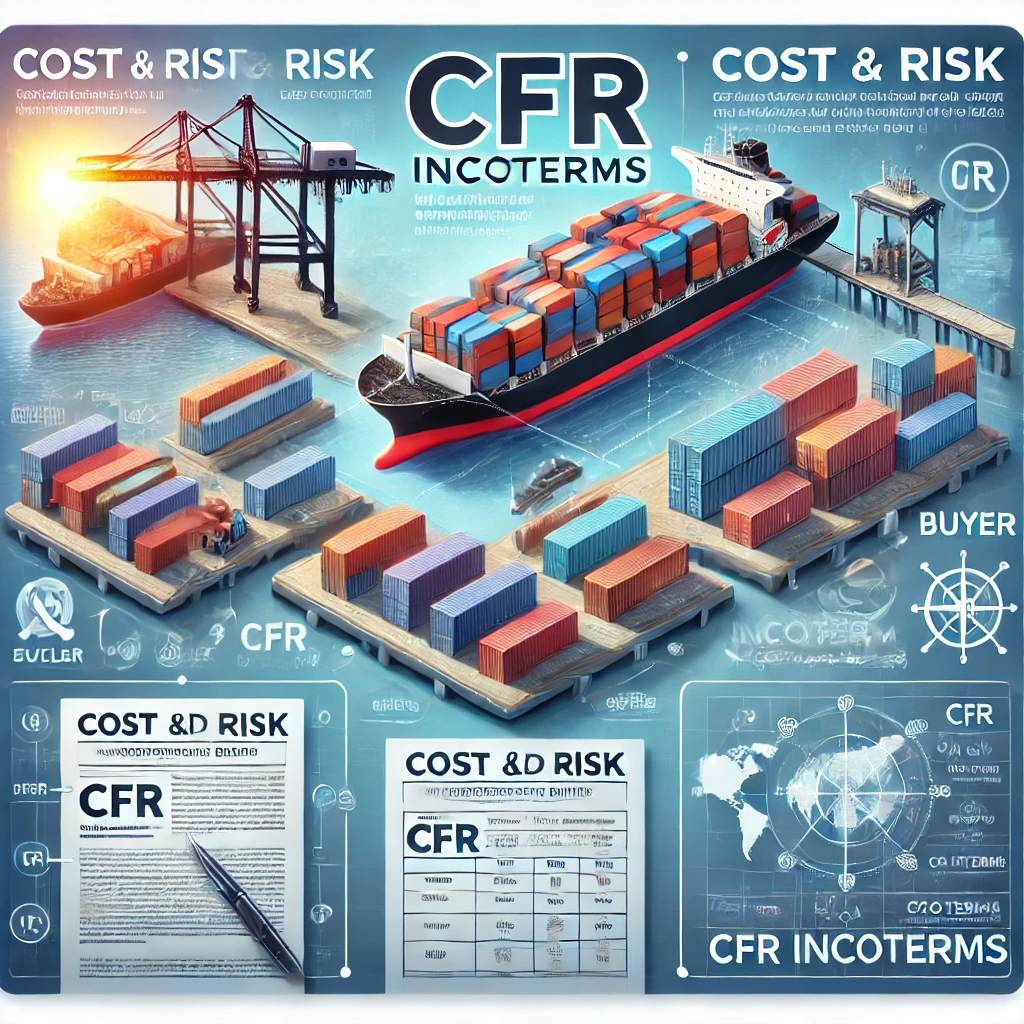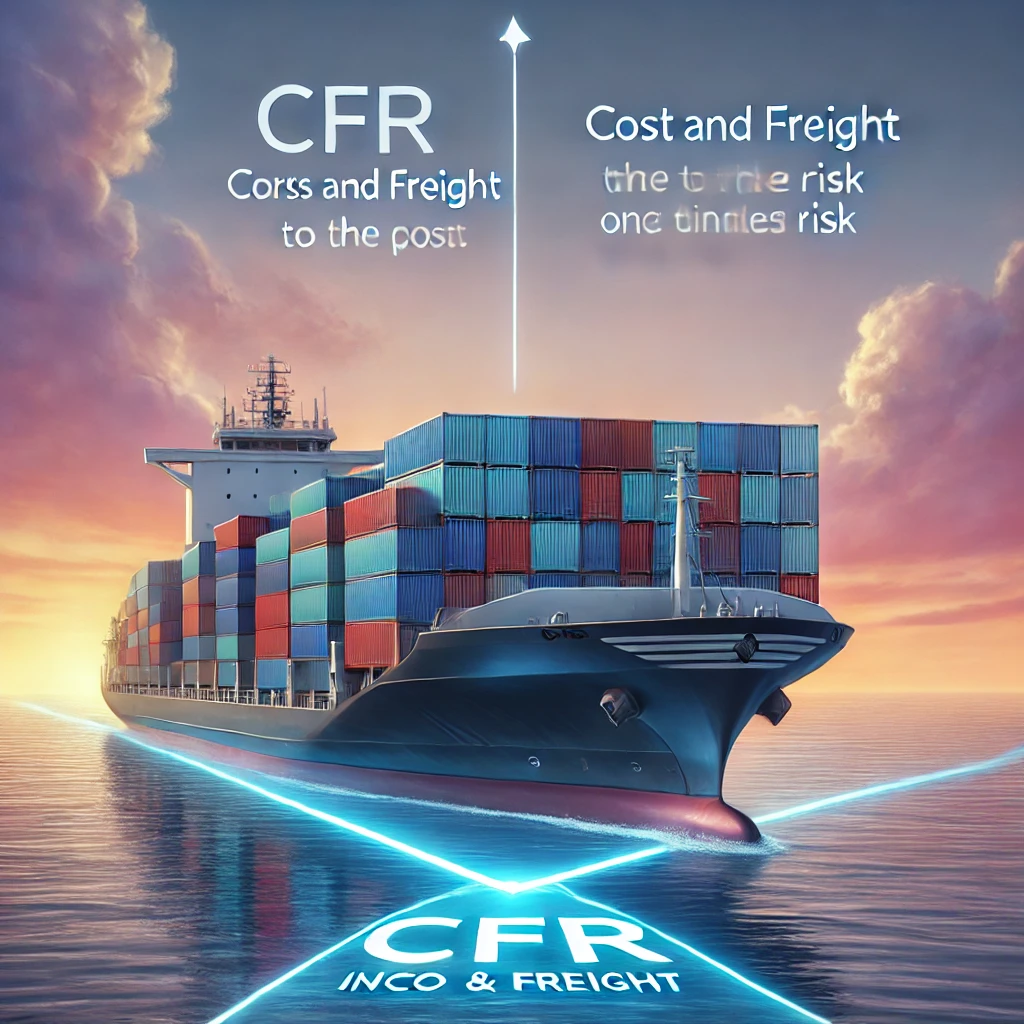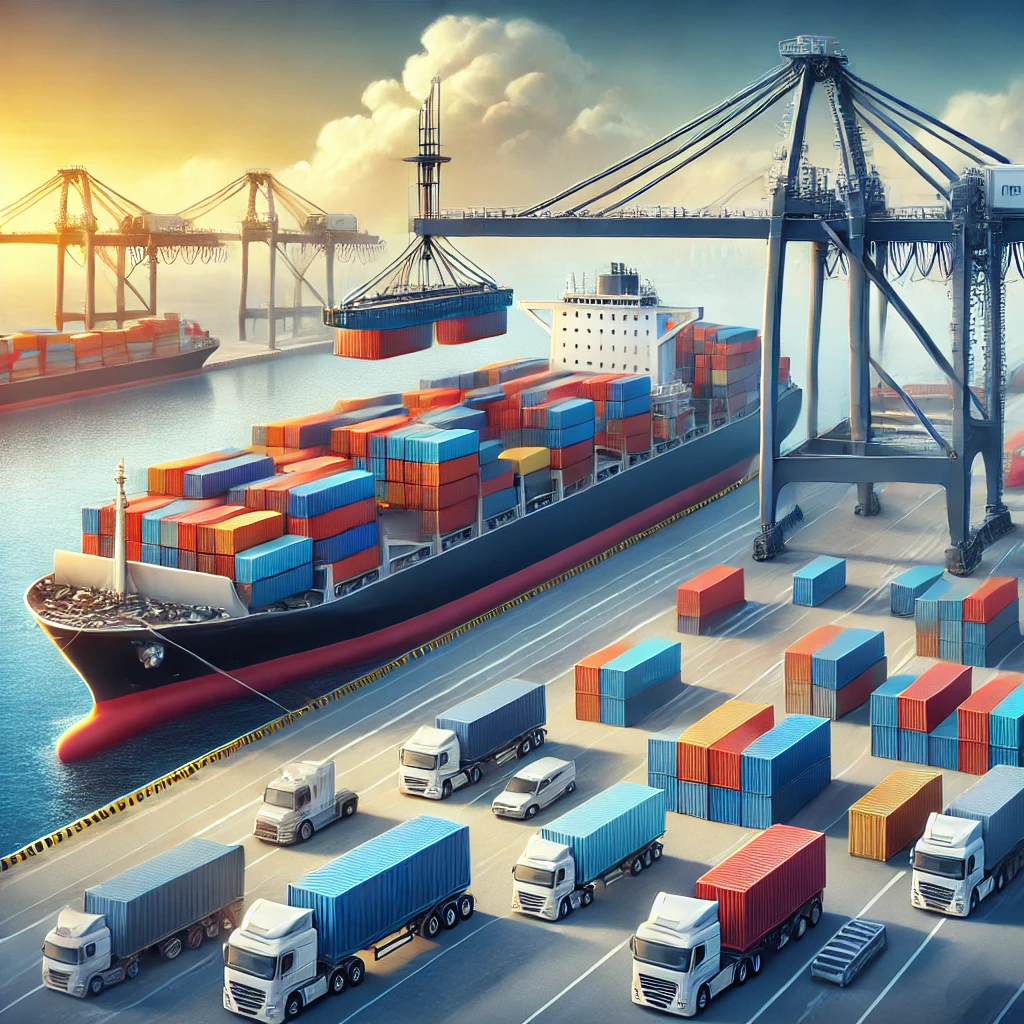The Role of CFR Incoterms in Modern Practices
CFR (Cost and Freight) Incoterms is a key international trade term defined by the International Chamber of Commerce (ICC). It specifies that the seller is responsible for the cost and freight necessary to bring goods to the port of destination. However, the risk transfers to the buyer once the goods are loaded onto the shipping vessel.

Key Features of CFR Incoterms
- Seller Responsibilities: Covering transportation costs to the destination port, arranging export clearance, and providing essential shipping documents.
- Buyer Responsibilities: Assuming risk from the point of loading, handling import clearance, and arranging insurance if necessary.
- Point of Risk Transfer: Risk transfers to the buyer once goods are on the vessel.
- Transport Mode: Primarily used for maritime and inland waterway transport.
Practical Uses of CFR Incoterms
CFR Incoterms are widely used in global trade, especially for bulk commodities such as oil, grain, and minerals. Businesses benefit from simplified cost management, as the seller covers significant transportation expenses.
Example Scenario:
A supplier in Brazil ships soybeans to a buyer in China under CFR terms. The supplier arranges and pays for transport to Shanghai. Once the soybeans are on the vessel, the buyer assumes all risks for the shipment.

Relevance of CFR Incoterms in Modern Trade Practices
- Cost Management: Simplifies budgeting by clearly defining cost responsibilities.
- Risk Management: Ensures a clear point for risk transfer.
- Global Standards: Promotes clarity and reduces disputes in international contracts.
- Applicability: Suitable for bulk goods and commodities.
Comparison with Other Incoterms
- CFR vs. CIF: CIF includes insurance, while CFR does not.
- CFR vs. FOB: FOB transfers risk earlier, at the port of origin.
- CFR vs. DDP: DDP (Delivered Duty Paid) makes the seller responsible for all costs and risks until delivery.

Benefits and Challenges of CFR Incoterms
Benefits:
- Reduces cost uncertainty for buyers.
- Simplifies logistics arrangements for sellers. Challenges:
- Buyers bear shipping risks without mandatory insurance.
- Limited to sea and inland waterway transport.
Best Practices When Using CFR Incoterms
- Detailed Contracts: Specify delivery ports and responsibilities.
- Insurance Coverage: Buyers should secure marine insurance.
- Use Incoterms 2020: Follow the latest version for clarity.

Conclusion
CFR Incoterms are essential in modern trade, defining clear cost and risk responsibilities. Businesses that understand and apply them correctly can optimize their shipping strategies, reduce disputes, and navigate international trade efficiently.
